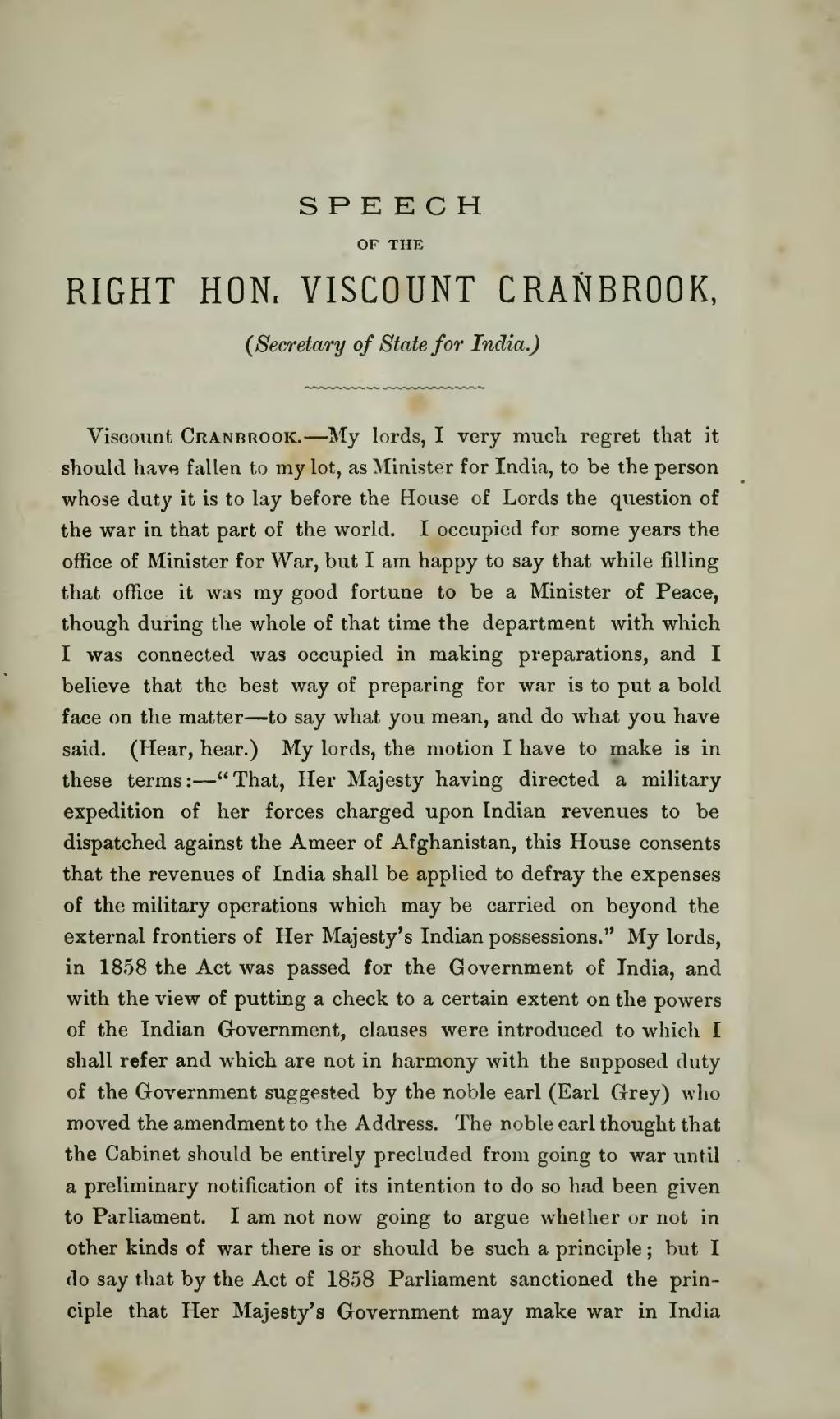SPEECH
OF THE
RIGHT HON. VISCOUNT CRANBROOK,
(Secretary of State for India.)
Viscount Cranbrook.—My lords, I very much regret that it should have fallen to my lot, as Minister for India, to be the person whose duty it is to lay before the House of Lords the question of the war in that part of the world. I occupied for some years the office of Minister for War, but I am happy to say that while filling that office it was my good fortune to be a Minister of Peace, though during the whole of that time the department with which I was connected was occupied in making preparations, and I believe that the best way of preparing for war is to put a bold face on the matter—to say what you mean, and do what you have said. (Hear, hear.) My lords, the motion I have to make is in these terms:—"That, Her Majesty having directed a military expedition of her forces charged upon Indian revenues to be dispatched against the Ameer of Afghanistan, this House consents that the revenues of India shall be applied to defray the expenses of the military operations which may be carried on beyond the external frontiers of Her Majesty's Indian possessions." My lords, in 1858 the Act was passed for the Government of India, and with the view of putting a check to a certain extent on the powers of the Indian Government, clauses were introduced to which I shall refer and which are not in harmony with the supposed duty of the Government suggested by the noble earl (Earl Grey) who moved the amendment to the Address. The noble earl thought that the Cabinet should be entirely precluded from going to war until a preliminary notification of its intention to do so had been given to Parliament. I am not now going to argue whether or not in other kinds of war there is or should be such a principle; but I do say that by the Act of 1858 Parliament sanctioned the principle that Her Majesty's Government may make war in India
